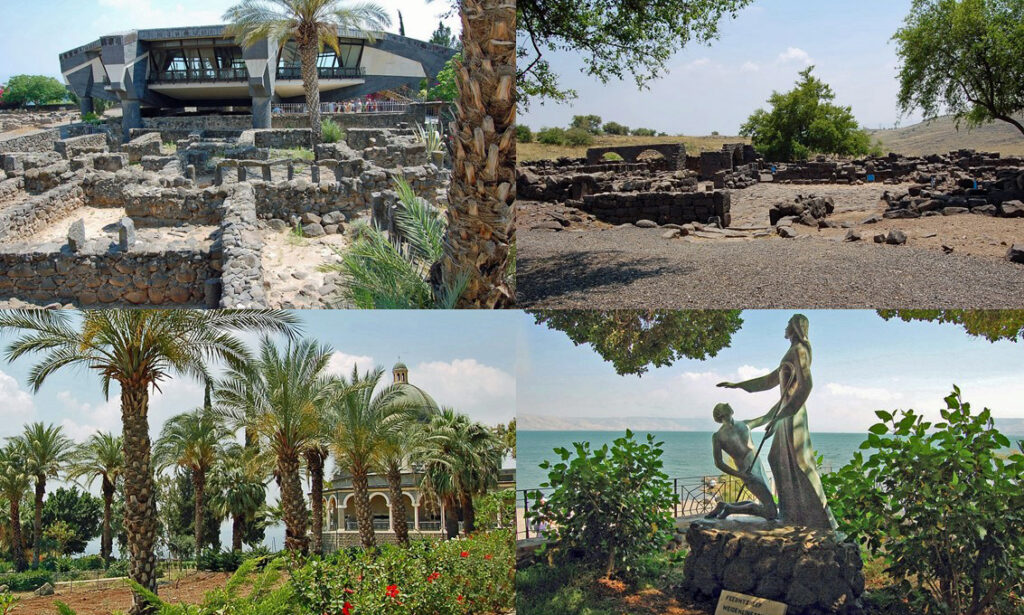Continuing our tour of Israel and the Palestinian Territories, we go around to the northwestern shore of the Sea of Galilee to sites important in Jesus’ ministry.
In the first century, Capernaum, home to four of Jesus’s disciples, was a fishing village, which became the center of Jesus’ ministry when Nazareth, his hometown, drove him out. According to Biblical accounts, Capernaum was the location of many of Jesus’ healing miracles, including the healing of Peter’s mother-in-law in Peter’s Capernaum house. Jesus taught in Capernaum’s synagogue, where he healed a man possessed by demons. Jesus also performed miracles in Chorazin, a farming village famous for its wheat set on a hillside about two and a half miles north of Capernaum, and in nearby Bethsaida. Because the people witnessing those miracles did not repent as he had expected, Jesus expressly denounced all three villages by name.
Archaeologists have uncovered the ruins of Capernaum and Chorazin, but disagree about the location of Bethsaida. Today, Capernaum includes a memorial to Peter, perched on columns above what has long been regarded as Peter’s house. Capernaum also includes the ruins of a fourth century synagogue erected over the one in which Jesus taught. Although archaeologists have not yet found the remains of first-century Chorazin, they have uncovered ruins from the third century, including a large synagogue constructed of black basalt. Just west of Capernaum is the Church of the Beatitudes, located on a hill overlooking the Sea of Galilee associated with Jesus’s Sermon on the Mount. It was built in 1936 with the financial support of Italian dictator Benito Mussolini. In the nearby area of Tabgha, associated with Jesus’ reported miraculous multiplication of the loaves and fishes, a statue remembers the account in the Gospel of John where Jesus forgave Peter for having three times denied knowing him after Jesus’ arrest.
